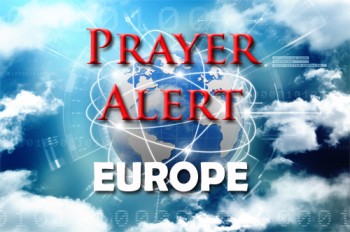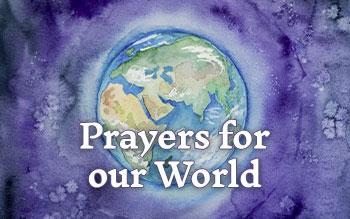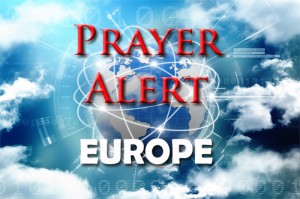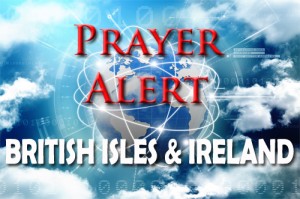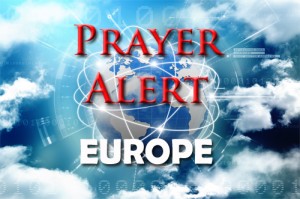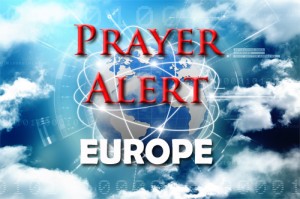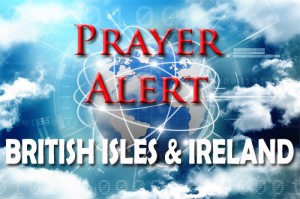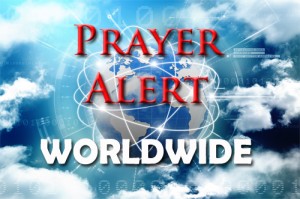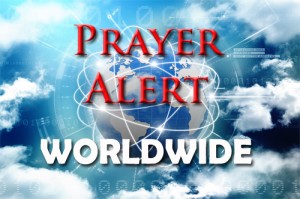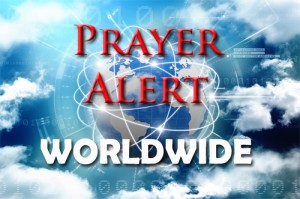Displaying items by tag: Putin
Russia: Putin has used conscripts
The Russian military have admitted that conscripts (drafted against their will) have been sent into Ukraine. Previously Putin had repeatedly denied this. It suggests that his initial planned swift takeover with professional soldiers failed. Conscripts going to Ukraine and coming home in body bags could be politically dangerous for him and have a more immediate impact on Russian public and influential opinion than any sanctions or corporate departures. Many believe the former KGB spymaster is trying to revive Russia's tsarist greatness and restore the Soviet Union might prior to its 1991 break-up. Proverbs 6 says that the Lord hates an evildoer: verse 15 declares, ‘Disaster will overtake him in an instant; he will suddenly be destroyed, without remedy.’
Putin Signs Law Suspending Russia's Participation in INF Treaty
Russian President Vladimir Putin has signed legislation that suspends the country's participation in the Cold War-era Intermediate-Range Nuclear Forces (INF) Treaty between Moscow and Washington.
The law, which was backed by parliament last month, was published on the government portal for legal information on July 3.
In February, the United States suspended its participation in the 1987 INF Treaty, with Washington and its allies accusing Russia of deploying a missile system that violates the pact.
Russia, which denies the allegation, later followed suit. Moscow accuses the United States of breaking the accord itself, a claim rejected by Washington.
The INF Treaty was the first of its kind to eliminate an entire class of missiles.
It banned the United States and Russia from developing, producing, and deploying ground-launched cruise or ballistic missiles with ranges of between 500 and 5,500 kilometers.
Based on reporting by Reuters and TASS
Pray: That parties to this agreement will return to the negotiating table.
Pray: For a new treaty to be brokered and an end to the production of these and other nuclear missiles.
Russia: Putin’s popularity decreasing
A survey by the independent pollster Levada Centre shows the number of Russians regarding Putin as Russia’s most trusted politician has fallen significantly recently. The survey asked respondents to list five or six politicians whom they trusted the most. Although Putin was first with 39%, trust in him had fallen 9% since June and a total of 20 percentage points since November. He recently signed into law an unpopular bill that gradually increases the state retirement age to 60 for women and 65 for men. Most ordinary Russians are deeply opposed to the reforms, which sparked rare street protests across the country. Putin’s lowest-ever rating in a Levada poll came in 2013, when only 30% said he was a trusted politician. Then his popularity surged to over 80% after Russia annexed Crimea from Ukraine.
UK: Upholding the Chemical Weapons Treaty
In 1997 the Chemical Weapons treaty came into force. Its full title is ‘The Convention on the Prohibition of the Development, Production, Stockpiling and Use of Chemical Weapons and on their Destruction’. In 2013 Syria agreed to the treaty. On 7 April 2018 Syrian activists, rescue workers and medics reported toxic chemicals dropped on Douma with Assad’s approval. It is believed not to be Syria’s first violation of the treaty. At the time of writing, because of chemical weapons use in Syria, Russia and America are threatening opposing military action over Syrian ground and airspace. Theresa May's cabinet has ‘agreed on the need to take action’. They are also considering military options with US and French allies. Key prayers for our MOD - What British forces might be used? The targets. What’s the overall strategic aim? Key prayers for Whitehall - How to avoid escalating the conflict? See World article 1
Increased risk of war, warns report
The 2018 annual Munich Security Report cited growing pressure on nuclear disarmament treaties and ongoing security concerns in eastern and central Europe as a cause for concern, and most worryingly the erosion of arms control agreements. ‘Deployment of additional weapons and tensions over military exercises has increased the risk of an inadvertent armed clash’, the report warns. ‘In this dire state of affairs, miscalculations and misunderstandings could lead to unintended military clashes. The Ukraine conflict was a stumbling block to de-escalation of tensions between Russia and the West.’ America’s decision to provide lethal arms to Ukraine would cement the current stalemate as countries in eastern Europe struggle in an environment of contested security, with the EU and NATO on one side and Russia on the other, at a time when the EU's Eastern partnership policy has ‘lost its steam’.
Intercessor Focus: Russian elections
In 2017 anti-Putin rallies attracted thousands in remote regions where people opposed Kremlin-run politics and called for credible opposition to be allowed to stand in elections. Alexei Navalny planned to face President Putin in March’s Presidential election, but was banned after dubious fraud accusations. On 28 January he was freed from a twenty-day jail term for organising anti-Putin protests, but was re-arrested the same day. Thousands protested against government corruption outside the Kremlin and across Russia, calling the election a farce and urging people not to vote. Kremlin-controlled media are not covering the protests. Putin is expected to win, but his main concern is getting enough people voting to make the election appear credible. For INSIGHTS into unethical, corrupt elections due in 2018 click the ‘More’ button.
Chilling threat to Britain
Ex-army colonel Hamish de Bretton-Gordon became a volunteer in Syria and said, ‘I’ve never seen anything as horrific as what is going on in Ghouta. Its starving people live underground in cellars, caves and tunnels. Three times in the past four days chlorine bombs were dropped by Syrian forces. Outlawed by the Geneva Convention, the chlorine combines with water in the lungs to produce hydrochloric acid, which dissolves the lungs. When civilians are flushed out onto the streets, they face death from the barrel-bombs and high-energy explosives that rain down from Putin’s Russian jets and Assad’s aircraft. Water is contaminated. Hospitals are targeted in air strikes. Ghouta is the last bastion to hold out against Bashar al-Assad and its inhabitants are being bombed, gassed and starved into submission.’ He added, ‘Putin can do as he pleases, and there will be chilling consequences for Britain’s security unless we act.’
Syria: Putin vows to rebuild Syria’s faith communities
President Putin told representatives of the Russian Orthodox Church: ‘Over the past few years the Russian state, alongside the Russian Orthodox Church and other religious organisations, has provided humanitarian aid to Syria. It is very important that peaceful life is re-established as soon as possible, so that people can return and begin rebuilding churches and temples.’ Putin also stressed that most of the historically Christian areas have been liberated. Syria’s Christian community, one of the oldest in the world, has shrunk from 30% to an estimated 10% of the population, after being driven from their homes or forced to convert to Islam. Syrian Christians lived in Syria for centuries before Assad, but only reached the highest levels of government when Syria was democratic. Despite being a minority they have long belonged to Syria's elite, and joined prominent political groups.
Vietnam: Putin / Trump talks
Presidents Vladimir Putin and Donald Trump may bring different expectations to the table at the Asia-Pacific Economic Cooperation forum in Vietnam (their last meeting, at Germany’s G20 summit, produced a de-escalation plan for the Syria/Israel border). They are reluctant to comment on whether they will make a thorough review of some equally challenging issues to Russia and the US, but the latest messages from Moscow suggest that the two men are considering a discussion of the Syrian settlement. The Russian ambassador to the USA said that the agenda for their meeting included 1) war on international terrorism; 2) Syrian peace settlement (Jordan and Russia want to end fighting in southwestern Syria as part of border deals between Amman, Washington and Moscow); and 3) North Korea’s nuclear plans. See previous article.
North Korea: nuclear test
On 3 September Pyongyang conducted an underground nuclear test of a hydrogen bomb, and claimed it can now mount a thermonuclear weapon on a missile capable of striking the USA. The US Ambassador to the UN, Nikki Haley, said Kim was ‘begging for war’ and urged the Security Council to adopt the strongest sanctions measures possible to stop Pyongyang's nuclear programme. On 5 September President Vladimir Putin voiced the fears of many when he warned that the escalating crisis risks developing into a ‘global catastrophe’. While speaking to the leaders of Brazil, India, China and South Africa, Putin said that imposing further sanctions would be useless and ineffective, and that Kim would rather starve his people than see his regime overthrown. He also urged against ‘military hysteria’. At the time of writing South Korea’s PM said they expect the North to launch an intercontinental ballistic missile on 9 September.
